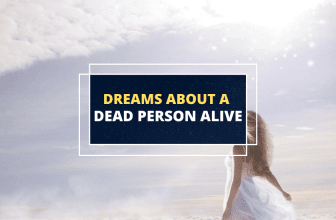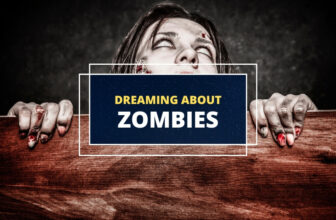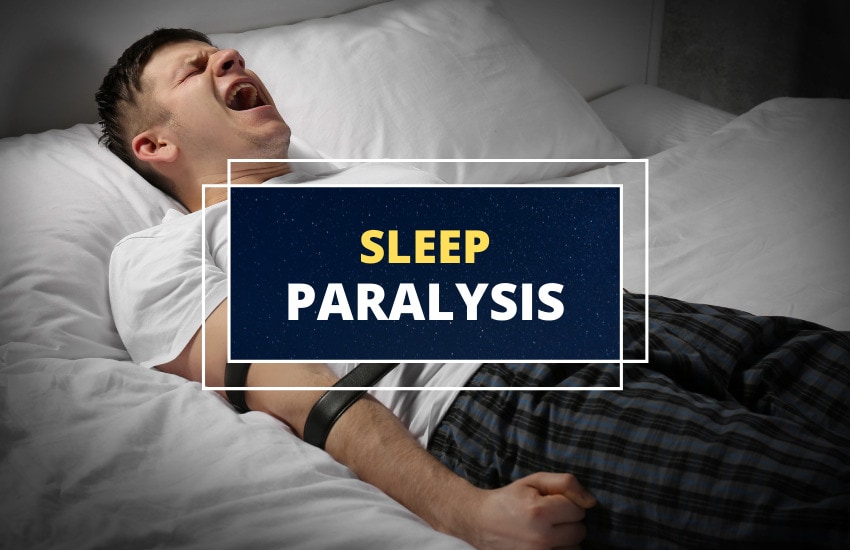
Table of Contents
Have you ever wanted to wake up from sleep and felt like you weren’t in control of your body? You’re completely conscious, gasping, and trying to move, but your body just won’t respond. Your eyelids feel heavy but you’re unable to close your eyes and as a result, you may feel traumatized. The more you try to wake up, the less likely it is that you will succeed. This is what is known as ‘sleep paralysis.
What Is Sleep Paralysis?
Sleep paralysis occurs when a person wakes up from REM (rapid eye movement) sleep, and their body or muscles are still paralyzed. When you fall asleep, your brain sends signals to the muscles in your arms and legs, causing them to relax or be temporarily ‘paralyzed’ which is also called ‘muscle atonia’.
Muscle atonia during REM sleep is what helps you to remain still as you sleep. As you wake up, the brain may delay sending signals to your muscles which means that although you’ve regained awareness, your body is still in its paralyzed state for a few minutes.
As a result, you may experience an inability to speak or move at all, which is sometimes accompanied by hallucinations. While it can be quite terrifying, sleep paralysis is not dangerous and typically lasts no more than a few minutes before you wake up fully and are able to move your limbs.
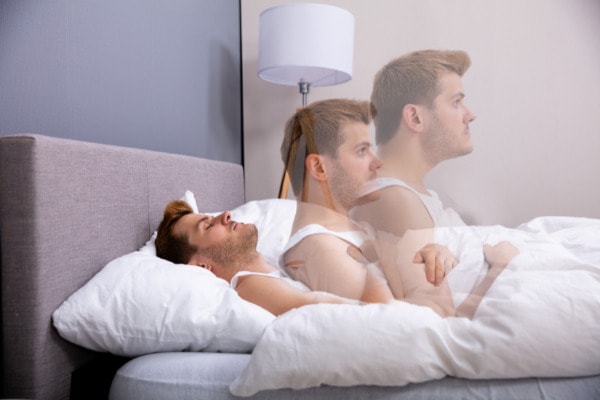
Waking Up Feels Impossible
In simple terms, sleep paralysis means trying to wake up and move your limbs but being unable to. As mentioned earlier, this is because the body and mind have fallen asleep separately, so your brain thinks that it hasn’t woken up yet when in fact, it has.
Many people even experience an out-of -body feeling which can be extremely scary. This feeling is also associated with the fear of death. Some people claim that when they wereunable to wake up, they felt as though they were dying or dead.
You Feel as Though Someone is Watching You
Many who experience sleep paralysis claim that they weren’t alone during the episode. The presence seemed very real, and some were even able to see it quite clearly as they struggled to wake up.
This is quite common, and you may feel like there’s no one around for miles except the presence that has chosen to watch over your slumber. However, this feeling quickly dissipates once you snap out of your state of sleep paralysis. Many have also reported feeling as though someone else was in control of their body.
What Causes Sleep Paralysis
The primary cause of sleep paralysis has been identified as a disruption in the regulation of REM sleep that causes a person’s mind to wake up before their body does.
This can also happen during other types of non-REM sleep, but it’s more closely associated with REM because this is when we dream. During REM is when our minds are more active than they might otherwise be.
There are many psychological and lifestyle-related issues that can cause sleep paralysis. For example, losing someone close to you, a recent traumatic experience, as well as substance use can also lead to this kind of experience.
Sleep Paralysis in Ancient Times
The Ancient Greeks believed that sleep paralysis occurred when a person’s soul left their body while they dreamed and had trouble returning into the body upon waking up, resulting in feelings of suffocation associated with being ‘choked’.
During the Middle Ages, demonic possession was often blamed for occurrences of sleep paralysis among both young girls and boys. It was believed that they were visited by either a succubus (a demon or a supernatural entity that appeared in dreams as a female to seduce men), or an incubus (its male counterpart).
In the 1800s, sleep paralysis was often associated with ghosts and other terrifying creatures who would hide under victims’ beds to suffocate them during episodes.
Is There a Connection Between Demons and Sleep Paralysis?
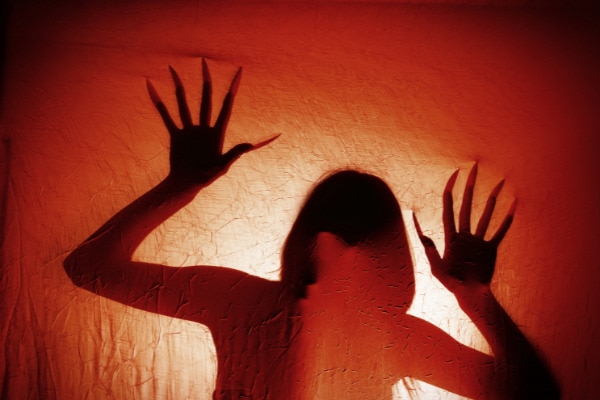
In medieval times, it was widely believed that demons would visit people while they slept. This explains why some believe that certain types of mental illnesses were caused by demons.
This is also how the idea behind “night terrors” originated. A “night terror” refers to when someone suddenly wakes up in a panic, is unable to move or speak, and is completely disoriented.
It’s believed that people who experience night terrors wake up screaming because they’re trying to cry for help. They are terrified due to what occurred during their sleep paralysis episodes but were unable to cry out since they still had no control over their bodies. It was also believed that those feelings of someone was controlling your body or choking you were a result of demonic activity or demonic possession.
Sleep Paralysis and Nightmares
During sleep paralysis, it’s common to experience nightmares about being chased or hunted by something frightening. This could explain why many people who suffer from night terrors feel as though a presence is lurking about as they sleep.
It’s said that children experience nightmares at higher rates than adults do, partly due to developmental factors such as stress caused by school bullies or social anxiety experienced around their peers. These nightmares can also be due to their vivid imaginations.
But sleep paralysis can be experienced at any age depending on the root cause behind it. Yes, it can be categorized as a nightmare because losing control over your body can not precisely be defined as a good experience at all.
Why is Sleep Paralysis Common among Youth and Those with Mental Illnesses?
There are several theories behind this question, including one study where it was found that about 70% of those who experience chronic hallucinations also have sleep paralysis. This means that there could be something similar going on neurologically between both experiences, which makes them more likely to occur together than just by chance.
One theory also includes the fact that teenagers are more likely to be stressed out inside school by their peers and outside of it, where they experience social anxiety. This stress can manifest in different ways, including changes in sleeping patterns, making them more vulnerable to experiencing episodes of sleep paralysis.
Can Sleep Paralysis Be Prevented or Cured?
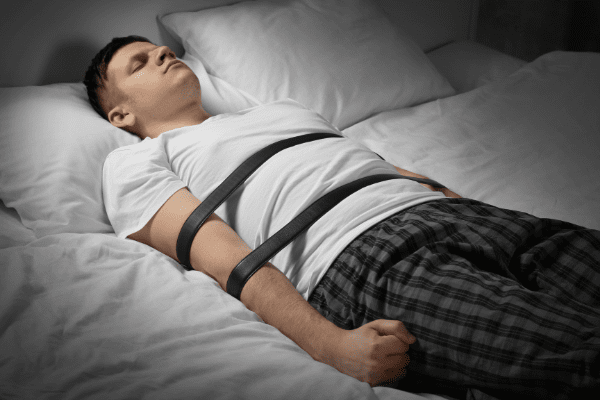
If you’ve experienced sleep paralysis at some point in your life, you probably know the feeling of panic, fear, and helplessness that can be caused by it. It’s said that those who have experienced sleep paralysis at least once in their life are more likely to develop health problems such as depression, anxiety disorders, and post-traumatic stress disorder.
However, most people don’t need treatment for sleep paralysis itself. Instead, they may need treatment for underlying conditions that could trigger the episodes. These could be poor sleep habits, use of antidepressant medication, mental health problems, and other sleep disorders.
The good news is, sleep paralysis isn’t dangerous, but if you find yourself having occasional episodes, you can take certain steps towards controlling it.
- Make sure that you get enough sleep, at least 6 to 8 hours per day.
- Try stress-relieving practices such as meditation, listening to calming music, or breathing techniques.
- If you normally sleep on your back, trying some new sleeping positions could help.
- Seeing a professional psychiatrist can also be a good idea to help prevent sleep paralysis.
- Talk to a doctor in order to identify and address underlying issues that could contribute to the frequency and severity of your sleep paralysis episodes.
In Brief
As traumatizing as the experience may be, it’s important to remember that sleep paralysis is not dangerous, and contrary to what some may think, it doesn’t mean that something bad will happen to you or that a demon has possessed your body. There’s a scientific reason for this experience and there are many coping strategies and natural remedies that can help you to manage it or even prevent it entirely.




